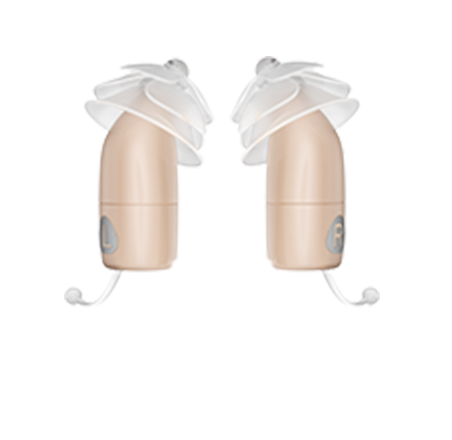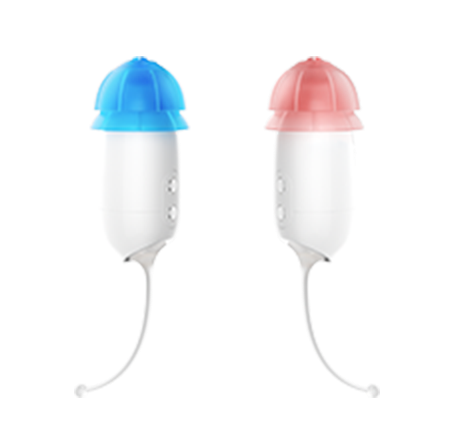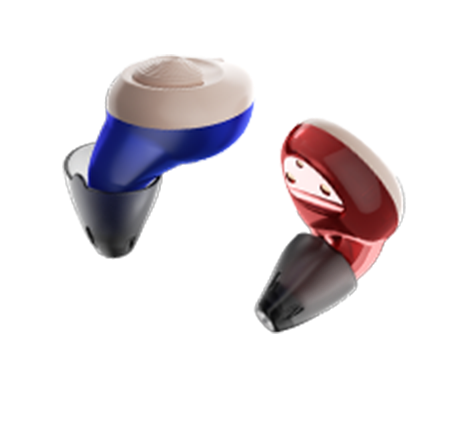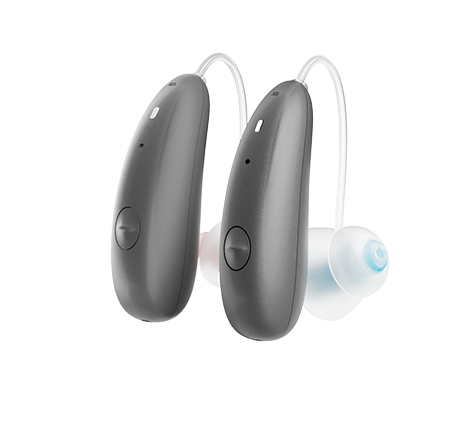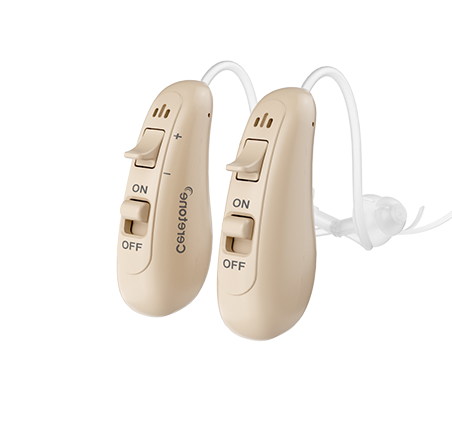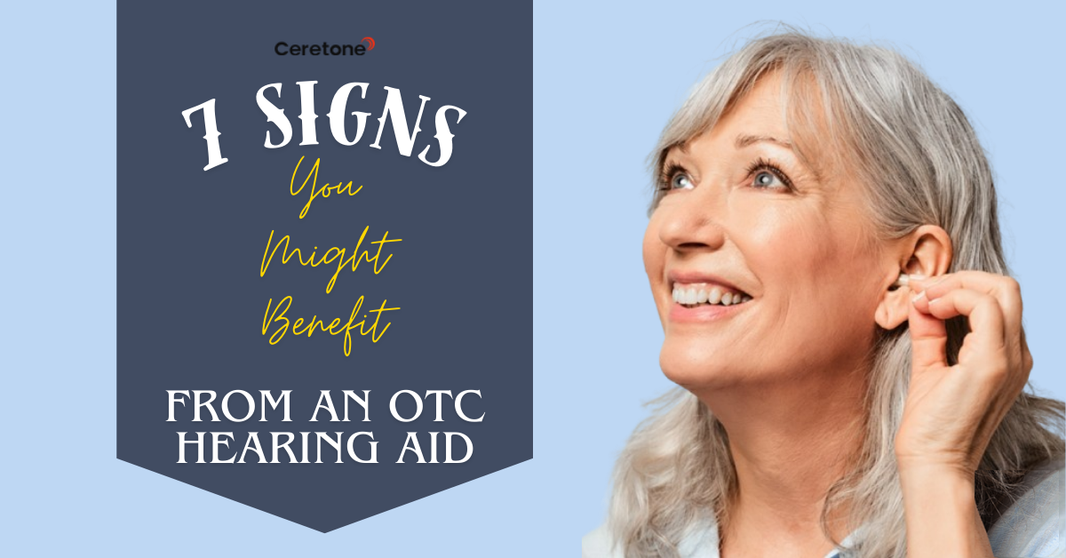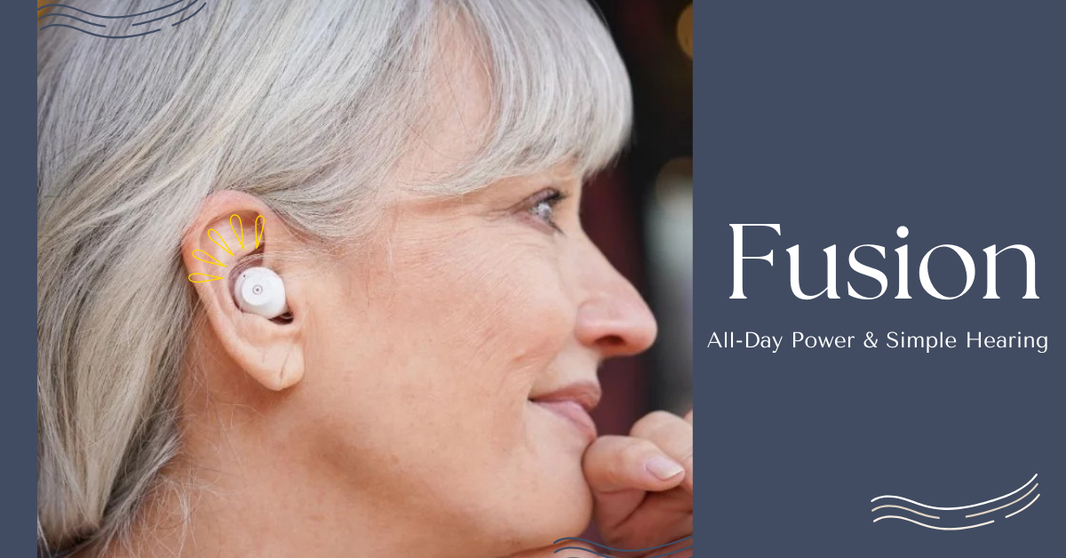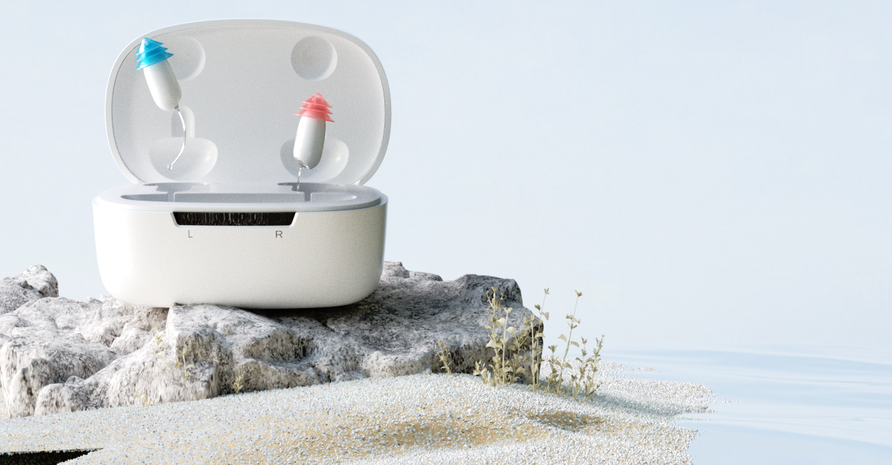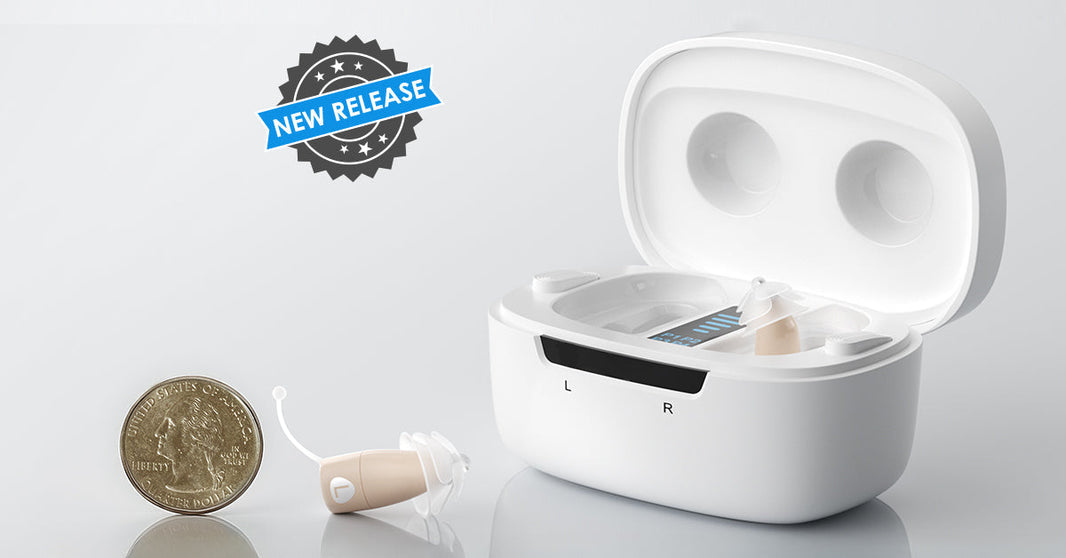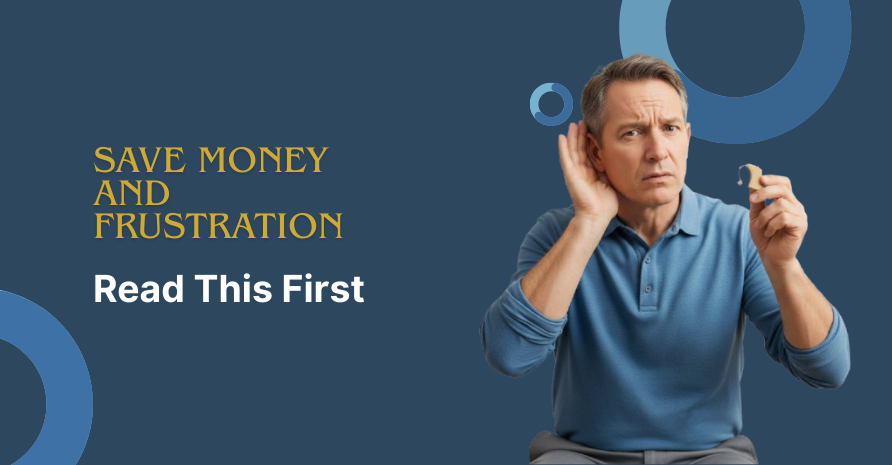
Can TMJ Cause Hearing Loss? Here’s What You Need to Know!

Introduction
Did you know that about 15.5% of American adults age 20 and older have some level of hearing loss? Hearing health issues are way more common than you think!
Hearing loss has become a widespread issue around the globe. And while people often don’t realize it, jaw pain or Temporomandibular joint disorder (TMJ) can be a big contributing factor.
The temporomandibular joint (TMJ), is the joint that connects your jawbone to your skull and is pretty crucial to help with your jaw movement. From chewing your favorite foods, endlessly talking, or simply yawning, TMJ is what does it all.
If you suffer from jaw pain, hear muffled sounds, or have clogged ears, you’re at the right place. Here's a blog to help you learn everything you need to know about TMJ and answer the big question: “Can TMJ cause hearing loss?”. Keep reading to learn how to take care of your symptoms and restore your hearing health!
Can TMJ Cause Hearing Loss?
TMJ disorder has pretty definite telltale signs if you know where to look. If you experience any kind of frequent jaw pain, popping noises when you chew or yawn, or frequent jaw locking, then this is a sign of a dysfunctional jaw.
Does TMJ and hearing loss have a connection? The simple answer is ‘Yes’. The jaw and ear are connected through Eustachian tubes; therefore, jaw issues can directly impact your ear health as well.

What are Eustachian Tubes?
Eustachian tubes are located right behind your eardrum. The tubes have two important jobs: to equalize the air pressure in the middle ear and drain fluid. Therefore, any excess pressure or inflammation in the jaw can cause long-term hearing difficulties, tinnitus, and jaw pain.

Can TMJ Cause Hearing Loss in One Ear?
Yes, TMJ disorder can cause hearing loss in one ear. Since the temporomandibular joint is located near the ears, inflammation or pressure buildup can affect hearing function in one or both of your ears.
Can TMJ Cause Hearing Loss Permanently?
No, TMJ disorder can not cause permanent hearing loss. However, the patient can have partial hearing loss, which can be improved by wearing hearing aids or cochlear implants.
If you're unsure whether you have hearing loss, you can use our online hearing test tool to assess your hearing health.
Symptoms of TMJ Hearing Loss
If you experience the following symptoms, it’s time to contact a healthcare provider and identify the cause. It can save you a lot of trouble in the long run, especially in cases where you might experience TMJ hearing loss.
1. Tinnitus
If you hear any whistling, humming, or crackling in one or both of your ears, take note of it. Whenever you hear it, ask the people surrounding you if they hear it, too. This will help you identify whether the sound is external or internal. Ringing in your ear is one major symptom of TMJ hearing problems.
2. Muffled Sounds
Muffled sounds are another symptom of TMJ. If you face an issue in making out other people's voices while they are standing close to you or hear sounds in a muffled or decreased way, this can be a sign.
3. Jaw Pain
Jaw pain can also be a cause for concern. Especially if the pain is constant and sharp and gets worse if you talk, chew, swallow, or yawn.
Does your jaw pain also travel to your face, neck, lower jaw, or teeth? It’s time to visit your healthcare provider.
4. Regular Headaches
TMJ headaches can be felt throughout your temples, cheeks, ears, and your jaw. It is very similar to a tension headache, which is mostly fixated on one area of the head or face. Observe if your headaches worsen in the morning right after waking up. This can be a sign of TMJ and fluid in the ear.
5. Dizziness
The TMJ is close to the inner ear. The inner ear is responsible for spatial orientation, sending signals to the brain about movements and balance. Therefore, the inflammation caused by TMJ disorder can affect your posture and cause dizziness.
6. Teeth Issues
TMJ can also affect your dental health. TMJ disorder can cause chronic or severe tooth pain as well as tooth sensitivity. The pain is usually sharp and consistent. It can also cause you to grind your teeth while sleeping, resulting in headaches the following morning.
Cracked teeth, poor dental alignment, molar pain, and enamel erosion are a few signs you should get your teeth checked by your doctor.
Can TMJ Hearing Loss Be Reversed?
Yes, with the correct and apt treatment options, TMJ hearing loss can be completely reversed. Don’t we all love a cure?
However, it is important to know that each patient's treatment may differ. If your symptoms have been ongoing for a while now, or you have any underlying conditions, the treatment can take longer.
How does TMJ Cause Hearing Loss?
When the muscles around the TMJ become irritated or inflamed, they can put pressure on the nerves and muscles around the middle ear, which can block the Eustachian tubes.
What does this do? It prevents the fluid from draining properly, causing air pressure and fluid buildup. This can also cause tinnitus, muffled sounds, and dizziness.
Starting TMJ Treatment: What to Expect?

After your initial diagnosis, your doctor will suggest treatment plans for your symptoms to help fix TMJ and hearing loss. A physical exam will be the first step in your treatment, followed by any imaging tests, such as X-rays, an MRI, or a CT scan, to get a better look at your jaw joint.
The next step is to devise your personalized treatment plan. This could vary according to your test results. Your doctor can recommend any of the following treatments to ensure your full recovery:
1) Splint or Mouth Guard: A mouth guard or splint helps to relax the muscles in your jaw. Your doctor can recommend this to help aid in your recovery.
2) Physical Therapy: Physical therapy has been proven to help with TMJ pain and hearing loss, according to a 2023 systematic review. It helps strengthen the muscles around your jaw, helping with jaw movement and ear pressure buildup.
3) Medication: Your doctor can also prescribe medication, such as analgesics or muscle relaxants, to reduce pain and ease muscle tension.
While surgery isn’t needed in most cases, it is a viable option. If your symptoms have caused further damage, your doctor can recommend that you consult with an oral and maxillofacial surgeon to help reverse your symptoms and cure TMJ hearing loss.
Conclusion
Can TMJ cause hearing loss? The answer is ‘Yes’. While hearing loss might not be the first symptom you might think of, the connection between your ear and jaw is undeniable.
Therefore, if you are suffering from jaw pain, hearing muffled sounds or ringing in your ear quite often, or having trouble chewing, yawning, or talking, these could be signs of a TMJ disorder.
The good news? It's all curable. Yes, all of it. The only key is identifying your symptoms early on to avoid surgical procedures. Believe it or not, your hearing health can be fully restored in a few physical therapy sessions.
